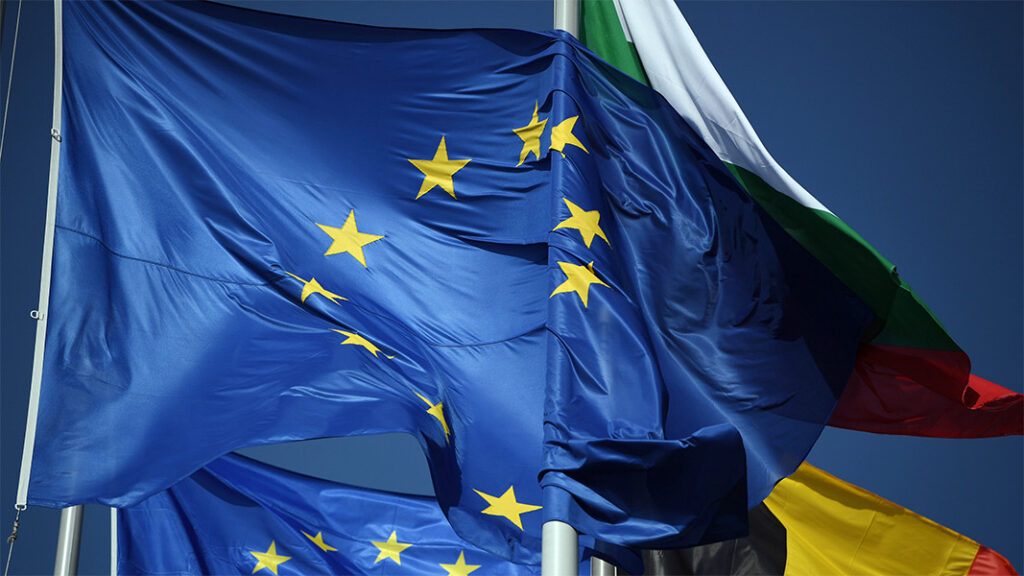Last December’s EU Council vote on welcoming Bulgaria, Croatia, and Romania to the border-free Schengen zone was supposed to be a victorious moment for the bloc. Showing unity after a year of political and economic hardship, as well as highlighting that the bloc still had the political capacity to further integrate Balkan states into the European project.
Although Croatia brought in the new year by joining both the eurozone and Schengen zone one month after their successful entry bid, their Balkan partners were not so fortunate. Citing concerns about failures to fully implement EU standards on the rule of law, alongside links between criminal gangs and both nation’s political establishments, the Netherlands and Austria vetoed Bulgaria’s bid, with Austria solely vetoing Romania’s bid.
The veto caused massive outcry from both politicians and public alike. Immediately accusations flew at the Netherlands and Austria, being seen as blocking their Balkan partners due to domestic woes — with both countries facing anti-migrant opposition parties increasing in support, rather than for reasonable political concerns.
Boycotts of Austrian and Dutch products were even discussed across social media platforms by Bulgarians and Romanians. Even some local politicians joined in, suggesting their public snub Austrian banks, as well as the products of Austrian chemical giant, OMV.
Although many EU leaders did what they could to soothe the growing anger, the damage had been done. Since then, both the bloc’s key political figures, alongside the governments of Bulgaria and Romania have worked to ensure that another embarrassing veto does not occur again this year.
The immediate argument for letting Bulgaria and Romania in is clear. Having both joined the EU in 2007, the two countries have met all technical requirements for Schengen membership since 2011. However, due to a lack of solid political will, mostly caused by fears that the two countries had failed to effectively tackle corruption, alongside bringing their rule of law up to EU standards, their Schengen moment never came.
Since then however, the countries have consistently worked towards implementing anti-corruption measures that align with EU standards, as well as both having taken extraordinary measures to ensure the security of their borders, minimising the argument that expanding the Schengen zone could create a risk of increased flows of illegal migration.
Austria and the Netherlands main concern regarding institutional corruption and the role of organised crime is also being managed. Although both countries do still struggle from clear ties between criminal gangs and political representatives, more is finally being done to severe this.
This year alone, Bulgaria has undertaken numerous sting operations with its partners in the UK, taking down organised human-trafficking rings, alongside finally taking stronger action to ensure EU funds are allocated properly and are not secretly stolen by corrupt officials.
Furthermore, Romania has taken action to tackle widespread bribery within its institutions, especially in relation to human-trafficking at its borders.
Moreover, leaving the two countries (with a combined population of roughly 25 million) out of the Schengen zone would continue an unnecessarily costly endeavour. One of Schengen’s key arguments is the reduction of waiting times between member states, and the smoother passage of not only commerce, but people. Leaving two of the bloc’s members outside of this incredible achievement in European integration would only continue the large financial burden on the local economy of both nations.
Pro-Russia parties benefit
For the EU to miss another valuable opportunity to integrate its Balkan members would not only be politically reckless, but could create a furious backlash from Bulgaria and Romania’s public.
Both governments are struggling to counter the strong pro-Russian Eurosceptic Revival and Alliance for the Union of Romanians political parties respectively, which have seen increasing support in recent months. Another Schengen veto would be the perfect political gift placed right in their lap.
Although continued reform efforts are still required in certain areas within the two Balkan countries, much of this work is currently underway, and great progress has already been made. The two have long proven to be reliable, stable partners in the European project, now it is time for the EU to finally reward them both for their hard work and their patience.
Continuing to exclude Bulgaria and Romania from Schengen will do little to encourage further political reform, and will only seek to antagonise and frustrate two otherwise very pro-EU members.
Bad faith actors, namely Russia, always looking for ways to divide EU member states, would kill for an open opportunity to create disunity within the bloc such as this. It’s up to the EU Council to ensure that it’ll never get the chance.
Source : EU Observer


